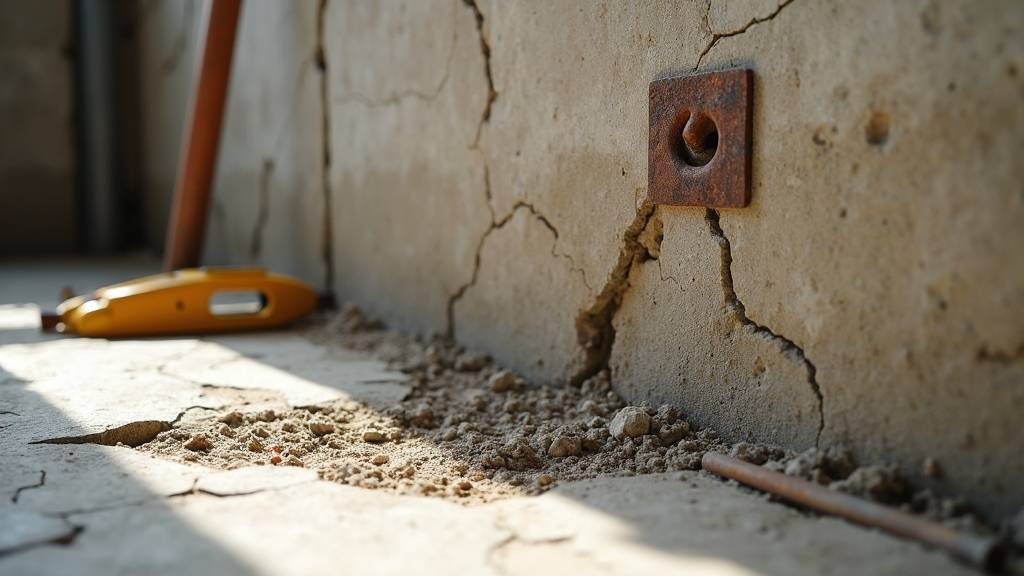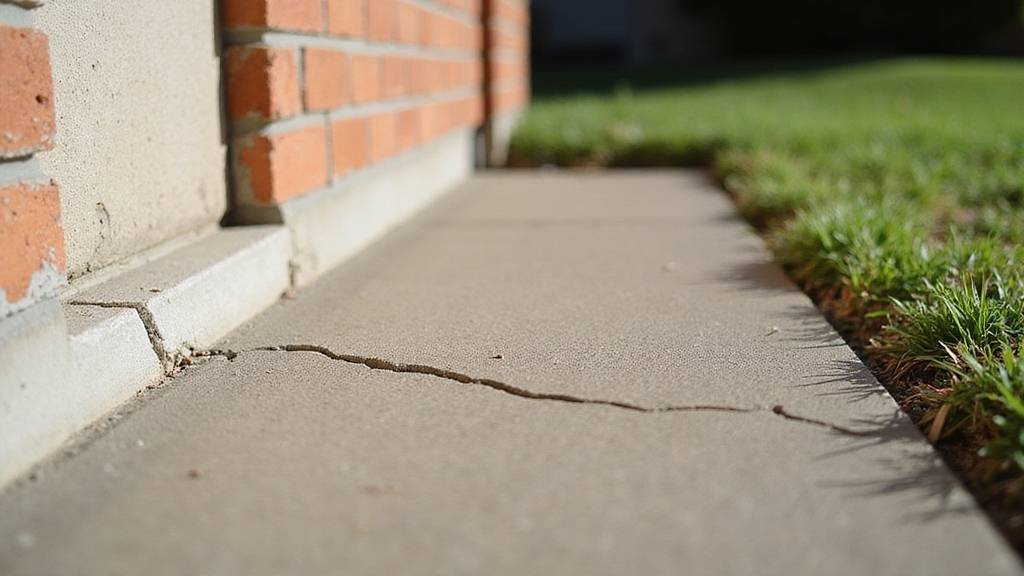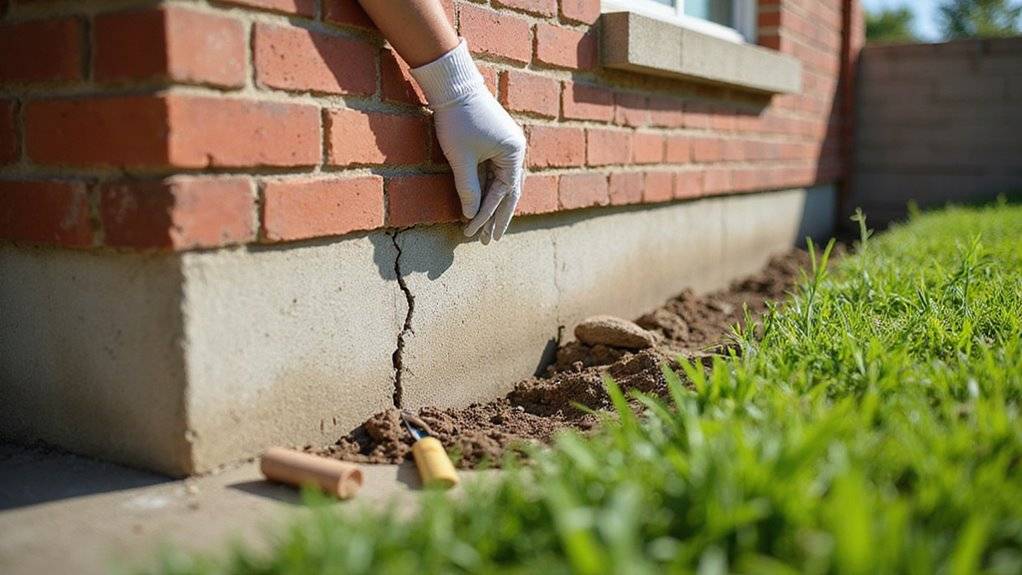Foundation problems can scare away buyers and hurt your home’s value. Many sellers wonder if they should fix these issues before listing. This is a big decision that can impact your sale.
If you ignore foundation issues, your home may get fewer offers and lower prices. Buyers worry about hidden costs and future repairs.
This can make your selling process longer and more stressful. The best approach is to carefully weigh repair costs against the likely return in your market before deciding.
You may find that fixing the foundation attracts better offers. Or you might decide to sell as-is and adjust your price. This blog will guide you through the pros and cons, so you can make the best choice for your situation.
Key Takeaways
- Repairing foundation issues before selling increases buyer confidence, attracts more offers, and can lead to a higher sale price.
- Homes with unrepaired foundation problems often sell slower, attract mainly investors, and receive lower offers.
- Repairing foundation damage may improve mortgage eligibility, expanding your buyer pool beyond just cash buyers.
- Providing repair documentation and warranties can ease buyer concerns and streamline negotiations.
- Comparing repair costs to potential sale price increase helps determine if fixing the foundation is financially worthwhile.
Understanding Common Foundation Problems

Foundation problems are common and can lower your home’s value. These issues often make it harder to sell your house. It is important to spot them early.
Cracks in walls, sticking doors, and uneven floors may signal foundation trouble. Different foundation types, like concrete slab or pier and beam, have unique problems. Soil movement under your home can also cause damage.
If you notice moisture or drainage issues near your home, you should address them quickly. Poor drainage can make foundation problems worse. Checking these areas helps prevent bigger issues.
Understanding these signs helps you act before selling your home. If you fix problems early, you can avoid costly repairs later. Being proactive protects your investment.
How Foundation Issues Affect Home Value
Foundation problems can sharply lower your appraisal value, giving buyers more influence to negotiate a lower price. You’ll also find your home’s marketability takes a hit, often leading to a longer selling timeframe. Address these issues early to protect your investment and attract serious offers. Additionally, proper disclosure of asbestos presence can help prevent future legal complications and build trust with potential buyers. Being aware of repair costs and valuation impact allows sellers to make informed decisions about whether to address foundation issues before listing.
Impact on Appraisal Value
Foundation issues lower the appraised value of your home. Appraisers notice problems and reduce the value to reflect repair costs. They also consider potential risks for future buyers.
Appraisers compare your home to similar houses without foundation problems. Homes with cracks or sloping floors often get a lower value. Lenders may not approve loans if foundation issues are not fixed.
If you repair foundation problems, you help protect your home’s value. Buyers and lenders feel more confident about the property. This can make it easier to sell your home.
Buyer Negotiation Leverage
Lower appraised values give buyers stronger negotiation power. Buyers know foundation problems can mean expensive repairs later. They may use this to ask for lower prices or bigger credits.
Foundation issues raise concerns about soil stability and future repairs. Buyers often expect trouble or more settlement if the foundation has problems. This makes them less willing to pay your asking price.
A professional foundation inspection helps protect your position. Documentation about the soil and foundation condition can reduce buyer worries. If you share these facts, you limit buyers’ room to negotiate lower offers.
Marketability and Timeframe
Even small cracks or settling can make your home harder to sell. Foundation problems lower your home’s value and make it less attractive to buyers. If these issues are present, your home may stay on the market longer than others.
Buyers often ask for large discounts when they see repair risks. These lower offers can reduce your final profit and may affect your taxes. If a home has unresolved foundation issues, it can hurt the value of nearby properties too.
Longer time on the market can worry other buyers and real estate agents. They may think there are bigger problems with your home. If you fix foundation problems early, your sale can go faster and smoother.
Signs Your Home Has a Foundation Problem
You’ll spot foundation problems early if you know what to watch for—visible wall cracks and doors that stick are two key red flags. Buyers notice these issues quickly, so you can’t afford to ignore them. Addressing these signs promptly protects your home’s value and smooths your selling process. Recognizing foundation issues early can help you decide whether repairs are necessary before listing your home. Additionally, understanding the importance of proper inspection can prevent costly surprises during the sale.
Visible Wall Cracks
Visible wall cracks can mean there are problems with your home’s foundation. These cracks may lower your home’s value, especially when selling. Buyers often worry that cracks show deeper issues with the property.
Cracks wider than a quarter-inch should not be ignored. Stair-step cracks in brick or block walls are signs of shifting foundations. Horizontal cracks might mean the foundation is under too much pressure.
If you plan to sell, fixing wall cracks can help attract more buyers. Addressing these issues may also help you get a better price. Consider solutions like foundation reinforcement or wall stabilization before listing your home.
Doors That Stick
Doors that stick are often a sign of foundation problems. When a house settles or shifts, doors may become hard to open or close. If you notice this, it could mean your home’s structure is moving.
Sticky doors are not just annoying. They can warn you about bigger issues with your home’s foundation. Buyers may see sticking doors as a sign of deeper problems.
If you plan to sell your house, check all doors for alignment issues. Address any foundation problems before listing your home. Fixing these issues can help keep your home’s value and make buyers more confident.
Home Inspection and Disclosure Requirements

A home inspection can strongly influence your decisions about fixing the foundation before selling. The inspection points out any soil or structural problems affecting your home. If issues are found, you may need to repair them to avoid losing buyers. Addressing foundation problems before selling makes the whole process smoother.
You are less likely to face deal delays or price cuts. Documenting all foundation issues and previous repairs transparently can help build trust with potential buyers. If you fix issues early, buyers feel more confident about the purchase. Properly handling foundation concerns can also help you avoid legal issues that arise from nondisclosure or undisclosed defects.
Buyer Perceptions of Foundation Damage
Even small foundation issues can worry buyers. Buyers may think the house is unsafe or will need expensive repairs. This fear often leads them to offer less money for your home. Recognizing how homebuyer perceptions influence offers can help you address concerns proactively. If buyers see cracks or settlement, they might think the whole neighborhood has similar problems. This can make them question if the area is a good place to live.
Some buyers may decide to look elsewhere. If a buyer stays interested, they might ask for a lower price or want you to pay for repairs. Sellers may have to cover these costs before the sale. Addressing foundation problems early can help keep buyers interested and protect your price. Fair cash offers from trusted buyers can help you sell quickly without the stress of repairs.
Cost of Repairing Foundation Problems

The cost of repairing foundation problems depends on the damage. Most repairs cost between a few thousand and tens of thousands of dollars. Serious issues usually mean higher expenses. Professional assessments give you a more accurate repair estimate. Homeowners should remember to include both visible and hidden damage in their budget.
If you skip this step, you might face surprises later. Several factors affect the total repair cost. These include the size and location of the damage, the repair method, and local labor prices. If you understand these factors, you can plan repairs before selling your home. Additionally, understanding foundation repair options can help you choose the most cost-effective solution. Knowing market challenges can also assist you in timing repairs to maximize your home’s value.
Weighing the Return on Investment
Before you commit to foundation repairs, weigh how the investment will impact your sale price. Compare the repair costs against the potential increase in your home’s value. This approach ensures you make a decision that maximizes your return. Keep in mind that significant repairs may not necessarily qualify for tax exclusions or benefits related to capital gains, especially if they do not meet the primary residence exclusion guidelines. Additionally, if your house is in good condition, repairs might not significantly boost its market appeal.
Impact on Sale Price
Foundation issues can lower your home’s sale price. Repairing them before listing often increases your home’s value. Fixed foundations attract more buyers and higher offers.
Buyers usually want large discounts if the foundation is not repaired. These discounts can be bigger than actual repair costs. If you repair first, you may sell faster and for more money.
Disclosing completed repairs builds trust with buyers. Inspectors are less likely to find problems that lead to price cuts. Repairing early can reduce stress and last-minute negotiations.
Costs Versus Value
Foundation repairs can cost a lot, but they help keep your home’s value strong. If you fix foundation issues, buyers feel more confident. Unrepaired damage can lower offers or make it hard to sell.
You should compare repair costs with the possible increase in your home’s selling price. Get quotes from trusted contractors before making a decision. The local housing market can also affect your return.
If you repair the foundation, your home might sell faster and for more money. If you do not repair it, expect buyers to ask for big discounts. Fixing problems early often gives you the best result.
Selling As-Is: What to Expect
Selling your home as-is means buyers will expect the property to have issues. Most buyers will be investors, flippers, or cash buyers. These buyers usually look for a lower price because of the needed repairs.
Buyers will likely want a foundation inspection before making an offer. If you have inspection reports, you should share them to build trust. Documentation can make negotiations faster and easier. Additionally, understanding legal considerations related to property disclosures can help you avoid future disputes.
Sellers should expect offers below market value. Buyers often include extra repair costs in their calculations. If you want to sell quickly, you may need to lower your asking price.
Knowing your local housing market helps you set a realistic price. A fair price can attract buyers and speed up the sale. If you price too high, your home may stay on the market longer.
Additionally, working with a local home buyer who offers fair cash prices and handles all paperwork can simplify the process and ensure a hassle-free sale.
Impact on Mortgage and Financing
If your home has foundation issues, getting a mortgage can be very hard. Lenders see foundation problems as a big risk. Many loans, like FHA and VA, require homes to pass strict inspections.
If your house fails inspection, some buyers may not get a loan. This means you might only attract cash buyers or investors. These buyers often pay less for homes.
If you fix the foundation first, you can attract more buyers. Addressing repairs helps buyers get approved for a mortgage. This can increase your home’s value and make selling easier.
Considering selling your house fast without an agent can be a good option if you want to avoid delays caused by repair requirements.
Negotiating With Potential Buyers
Foundation repairs affect both your selling price and negotiation power. Buyers will look closely at any foundation problems. You need a clear plan for how to handle these repairs.
If you fix foundation issues before selling, you may get a higher price. Leaving repairs for buyers often leads to requests for discounts or credits. Your decision should match your goals and the repair timeline.
Sellers should compare repair costs to possible price reductions. Inspection reports can help build buyer trust and show transparency. Offering repair credits or flexible timelines can make your offer more attractive.
Good negotiation protects your interests and can speed up the sale. If you prepare well, you will have an advantage at the table. Local market trends should guide your choice.
Warranties and Transferable Repairs
A warranty or transferable repair guarantee can make buyers less worried about recent repairs. These options show that the home has extra protection if foundation problems return. Buyers may pay more for a house with a reliable warranty.
Buyers feel safer knowing repairs are covered after they move in. This protection can help your home stand out in a busy market. If the warranty is transferable, new owners get the same coverage you did.
Always ask your contractor for a transferable warranty. You should keep records of all repairs and warranty details. If you highlight these in your listing, buyers will notice the benefits.
Working With Real Estate Agents
Working with a real estate agent helps you sell your home, especially if it has foundation repairs. An agent understands how to present your home’s repair history and warranty. This makes buyers feel more confident.
A good agent will highlight your home’s upgrades and repairs in marketing materials. They answer questions about soil settlement or foundation materials from buyers. If concerns come up, they know how to address them clearly.
Agents use your repair records to negotiate better offers with buyers’ agents. If you want to get the best value, you should provide all documentation. With an experienced agent, you can sell your home smoothly, even with past foundation issues.
Timing the Repair Before Listing
You need to weigh how foundation repairs will influence your home’s market value and buyer interest before listing. If you’re considering selling as-is, understand that buyers may expect a discount for unresolved issues. Timing your repairs strategically can help you attract stronger offers and avoid prolonged negotiations.
Market Impact of Repairs
Completing foundation repairs before selling your home can increase its value and help it sell faster. Buyers look for homes without major issues. If your home has repairs done, it may attract more offers at better prices.
Foundation repairs remove reasons for buyers to negotiate a lower price. Appraisers also see the home as more valuable without visible problems. If repairs are complete, buyers are likely to feel more confident about making an offer.
Homes in good condition often sell quickly in competitive markets. If your property is move-in ready, it stands out to buyers. Listing with recent repairs can help you get a better return, even after repair costs.
Selling As-Is Considerations
Selling a home “as-is” with foundation issues usually attracts fewer buyers. Most interested buyers will be investors or cash buyers. They often offer less than the home’s market value.
If you delay repairs, fewer buyers may be interested. Buyers might lower their offers to cover repair and remodeling costs. Your home may also take longer to sell.
If you fix the foundation before listing, more buyers may consider your home. Stronger offers are more likely if repairs are already done. Consider the repair cost against the risk of lower offers and less interest.
Making the Final Decision
You should choose the option that gives you the best return with the lowest risk. Think about your repair costs, local market, and how fast you want to sell. Decide if fixing the foundation or selling as-is meets your needs.
Buyers in some markets expect homes to be move-in ready. Other areas may have buyers who are fine with homes needing repairs. If buyers want move-in ready homes, repairs may help your sale.
Repairing the foundation might attract more buyers. If there are enough investors, selling as-is could be simpler. Check if repairs will give you more money after costs.
Pick the choice that fits your timeline and comfort with risk. If you want a quick sale, selling as-is may work better. If higher profit matters most, repairs might be worth it.
Conclusion
If you want to sell your home, fixing foundation issues can make the process smoother. When sellers choose repairs, buyers feel more confident. If you address problems early, your home may sell faster and at a better price.
If you do not want to handle repairs, there are still options. Some companies, like us, buy houses as-is for cash. This can save you time and effort.
If you are ready to sell or have questions, we can help. At Freedom Path Investors, we buy houses for cash in any condition. Contact us today to see how we can make your sale simple and stress-free.







